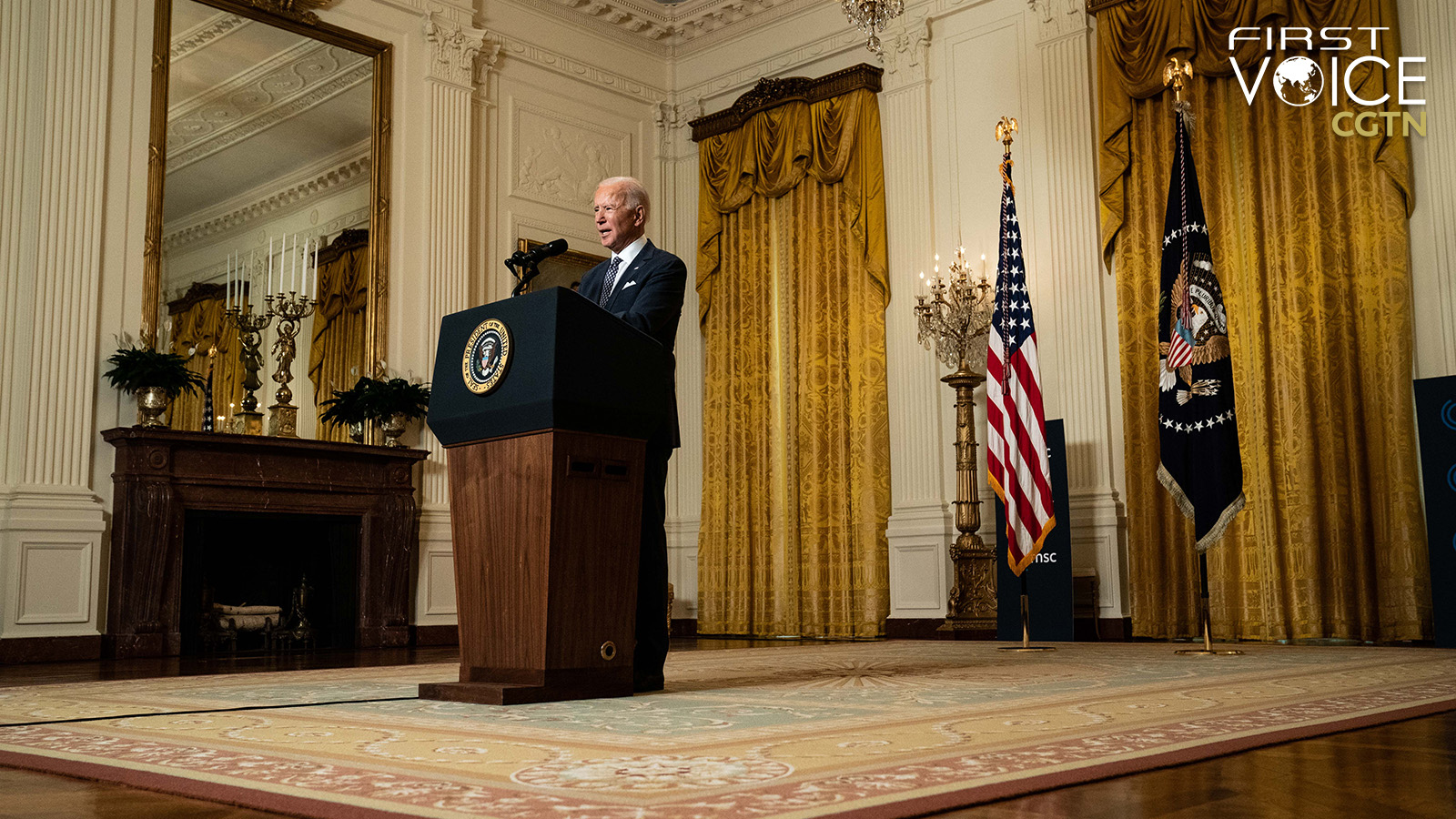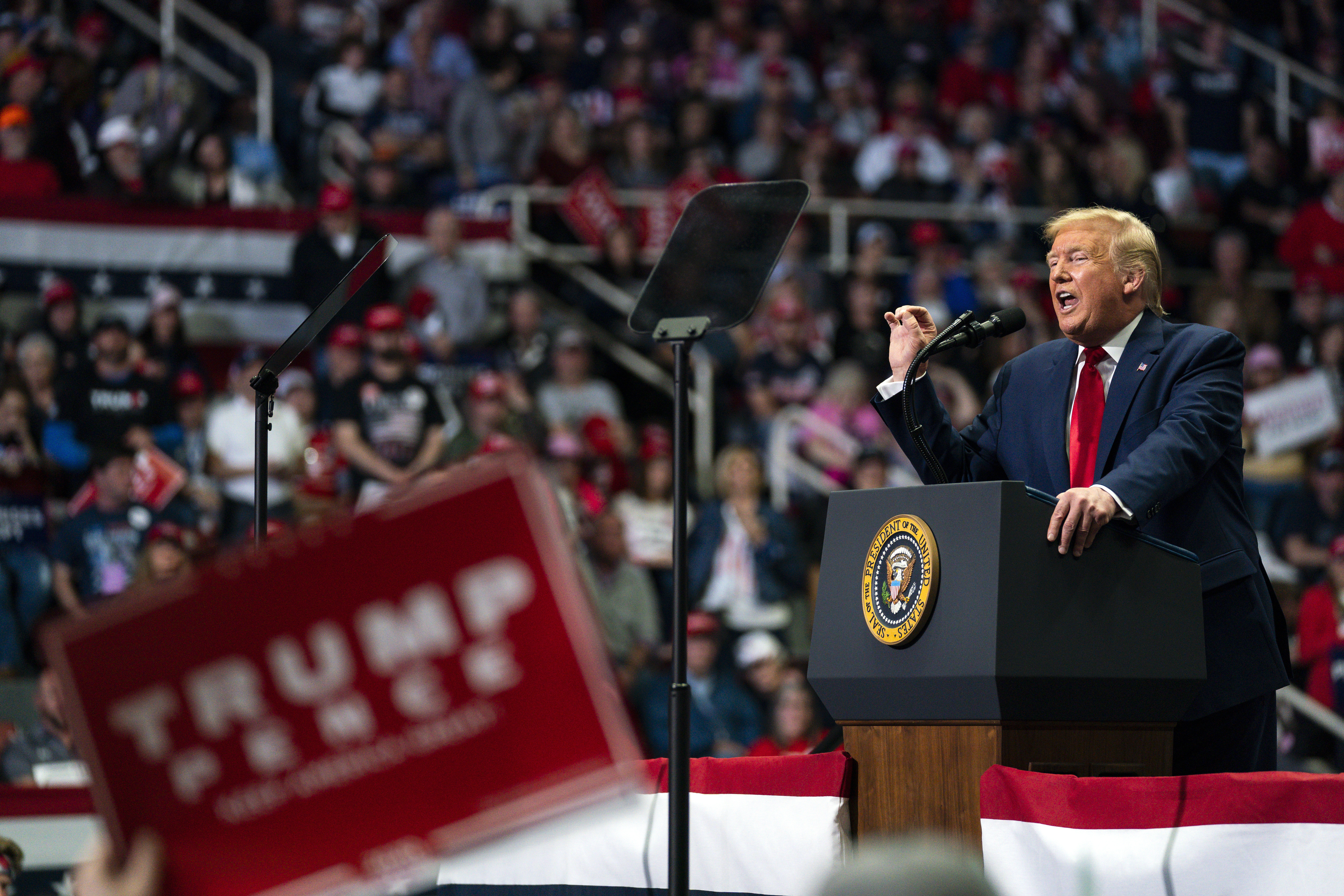
Editor's note: CGTN's First Voice provides instant commentary on breaking stories. The daily column clarifies emerging issues and better defines the news agenda, offering a Chinese perspective on the latest global events.
"We have to prove that our model isn't a relic of history. It's the single best way to revitalize the promise of our future," beseeched U.S. President Joe Biden at the Munich Security Conference on February 19.
Biden made clear he wants to bring the U.S. back to the leadership position in global affairs. He said so on the campaign trail and in the White House. He admitted that this time around, the job description for that position would be different. He emphasized much on the importance of the trans-Atlantic partnership and put mending fence with Europe as one of the priorities on his foreign policy agenda.
But describing the democratic system as the "single best" salvation, really?
It is as much an outdated take on international politics as it is a hypocritical one. Nationalism, protectionism, isolationism, and nativism were all byproducts of the "model" that Biden extolled and cherished.
He accused China of not abiding by the international standard, but the chaos, damage to national reputation, and volatility in the international system over the past four years are not China's fault. A major political party in his country refused to acknowledge the basic facts and churned out anti-China hardliners who flout evidence and peddle conspiracies. Its "model" produced a society mired in inequality, racism, and governmental ineffectiveness that led to an administration that governed the country by rage.

Former U.S. President Donald Trump addresses a campaign rally at Bojangles Coliseum in Charlotte, N.C., U.S., March 2, 2020. /AP
Former U.S. President Donald Trump addresses a campaign rally at Bojangles Coliseum in Charlotte, N.C., U.S., March 2, 2020. /AP
It's 2021, not 1961. It is well past the time for countries to erect ideological walls and divide the world into us-vs-them. If the past year has proven anything, it'd be that no single model is the answer to all problems. When the pandemic hit, people questioned whether China's system was capable of handling the threat. China lost less than 5,000 people to the virus. The U.S., which many assumed to be in the best shape to deal with the challenge, recorded more than 490,000 deaths and the number is still growing. And as we have all witnessed over the past week, U.S.'s decrepit infrastructure was on full display as millions in Texas had to endure frigid temperatures without power or running water.
Does any country want to repeat such a tragedy?
Countries have to find their own way that fits their own situation. Diversity isn't a vice; uniformity doesn't equal strength. Using what the U.S. recognizes as a suitable model as an excuse and an example to prove of the system's efficacy wildly underestimates the existing differences – even among Biden's much-valued trans-Atlantic alliance. It'd be even more so if it discounts what happened over the past four years.
As many of the media have pointed out, Biden never once mentioned his predecessor. "Trying to expunge the last four years without ever once naming his predecessor, Donald Trump," The New York Times wrote. It is understandable that the new administration wants to draw a contrast with the old one, especially between these two vastly different presidents. But acting as if they don't exist won't be of any help.
Each system has its strengths and weaknesses, each has its own set of problems to deal with. No single version of any governing system is capable of encompassing the varied existing political, economic and cultural differences. Touting "the U.S. version of democracy" as a panacea is a hollowed promise of a utopic future dreamed by the people from ages long gone.
Scriptwriter: Huang Jiyuan
(If you want to contribute and have specific expertise, please contact us at opinions@cgtn.com.)

